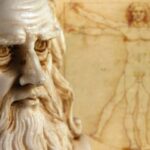We explain what humanism is and what its main characteristics are. Also, its representatives and the impact it produced.
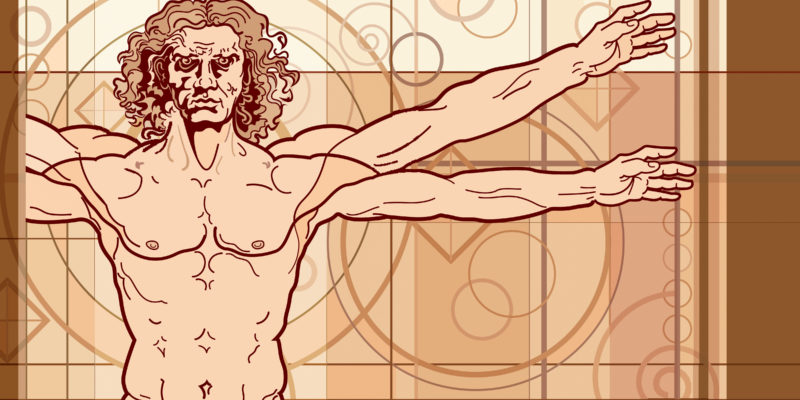
What is humanism?
Humanism was a philosophical and cultural movement that emerged in Europe during the 14th century. He was inspired by Greco-Roman culture and philosophy, prioritized reason over faith and was interested in the concept of man as the center of the universe.
Although there were several “humanisms”, such as those of the Middle Ages or the humanism of Charlemagne's court, When we talk about humanism we usually talk about the Italian Renaissancewhich is known as Renaissance humanism. In general, any study dedicated to the reading and interpretation of classical texts is a humanistic study.
It is also often said that philosophical works that emphasize human action over everything else are humanist. Examples of this are the works of Werner Jaeger, Erich Fromm, Erasmus of Rotterdam and Jean-Paul Sartre.
The multivocality of the term and its breadth force those dedicated to academic studies on humanism to treat the term with care. Although they share some very general characteristics, It is not the same to speak of Renaissance humanism as of existentialist humanism..
See also: Renaissance literature
Origin of humanism and etymology of the term
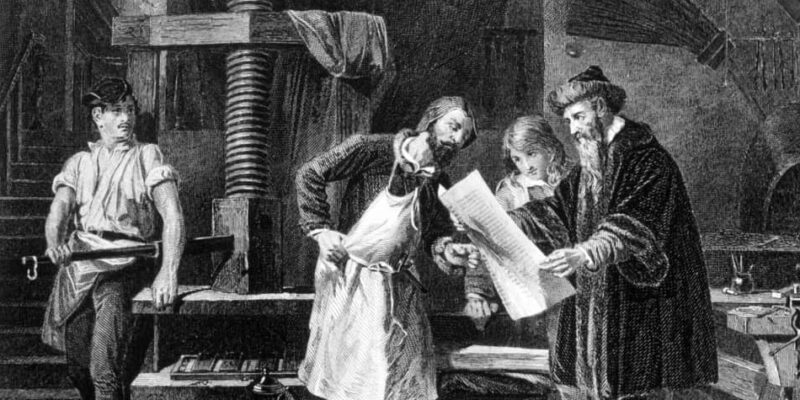
humanism originated in Italy during the 14th and 15th centuriesin the cities of Rome, Florence and Venice, based on the works of Dante Alighieri (1265-1321), Francesco Petrarca (1304-1374) and Giovanni Boccaccio (1313-1375). This era is also that of the Italian Renaissance, known as “Renaissance humanism.” The Italian Renaissance gave rise to the studia humanitatishumanistic studies, antecedents of the “current humanities”.
The link between humanism and the humanities is seen in the etymological origin of its name. Both come from Italian humanist. This is what the university rhetoric professors of the time were called, which is why the term was introduced into Latin. That “humanism” designates, in an abstract way, the set of ideas and preferences of the Italian Renaissance is the result of several later studies, especially German, dedicated to the beginning of the Modern Age.
Humanism, which had its origin in Italy, was influenced by this country's persistent relationship with classical Roman cultureas well as with its laws, and Latin grammar, rhetoric and oratory. The Italian humanists established a cycle of study dedicated to investigating grammar, poetry, history, rhetoric, and moral philosophy. This contrasted with the previous Christian cycle, which focused on theology, metaphysics, medicine, mathematics, and natural philosophy.
From 1450, with the invention of the printing press, humanism reached its peak thanks to the possibility of massively disseminating its ideas. The printing press served to facilitate and reduce the cost of an equitable distribution of academic texts that, until then, had been under the exclusive possession of ecclesiastical power.
At that same time, the Italian intellectual Giovanni Pico Della Mirandola published his Prayer about the dignity of manin which he exalted the rebirth of man, the extent of his freedom to think and do, and his creative likeness equal to that of God.
With the creation of great universities, such as Louvain and Alcalá, different critical studies on classic works such as the Aristotelian and Platonic corpus exploded. Many previously inaccessible works were translated.and thus different branches of knowledge were developed, left aside by the current authorities.
Later, The philosophers Erasmus of Rotterdam (1466-1536) and Michel de Montaigne (1533-1592) achieved notoriety.known today as two of the most famous humanists of the time. Their works ended up shaping humanism, extending it for more than two centuries, and establishing it as one of the most productive and innovative moments in European history.
Characteristics of humanism
Among the main characteristics of humanism the following stand out:
- classicism. Contact with the classics was resumed not out of nostalgia but out of a sense of familiarity and intellectual closeness. Both Francesco Petrarca, Coluccio Salutati and Nicolás Machiavelli claimed to feel close to Ciserón just by reading his letters.
- The analytical reading. An analytical reading was promoted that was capable of finding a critical attitude, necessary for any reader to fully understand the ideas of the classics.
- The realism. A rejection of traditional assumptions was established to seek, instead, an objective analysis of perceived and real experience. A realistic view of history promoted a full understanding of the present. There was also a realistic approach to moral criticism, especially in the works of Erasmus of Rotterdam, Thomas More, François Rabelais and Michel de Montaigne.
- Critical scrutiny. Independence was encouraged in relation to the secular world, particularly with respect to inherited intellectual programs and their preconceptions.
- The emergence of human dignity and the individual. These ideas were linked to the sense of personal autonomy promoted by Petrarch. Although individualism was observed with a critical and concerned gaze (for example, in the works of Machiavelli), the idea of a self-sufficient human dignity, capable of reaching intellectual enlightenment on its own, was promoted.
- The active virtue. The idea of an active virtue spread that, combined with philosophical understanding and powerful rhetoric, could change the way of living in cities. The active virtue of seeking the best could even reconcile opposing ideas, as well as rival or antagonistic thoughts.
Representatives of humanism
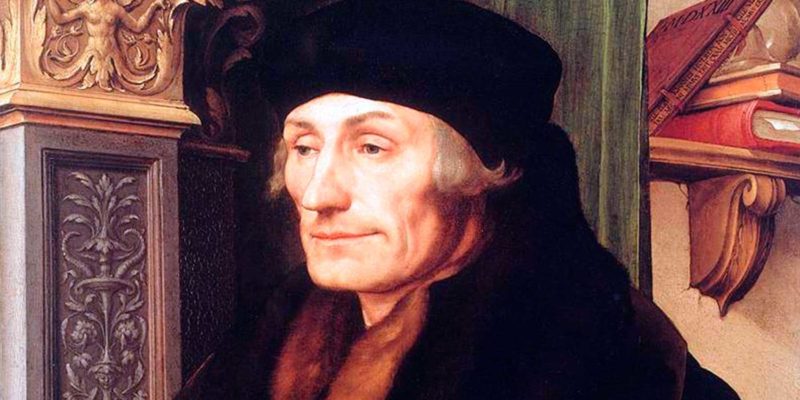
As a prolific movement, many thinkers of renowned and historical and philosophical importance emerged from humanism. Among them we can find:
- Dante Alighieri (1265-1321)
- Francesco Petrarch (1304-1374)
- Giovanni Boccaccio (1313-1375)
- Leonardo Bruni (1370-1444)
- Giovanni Pico Della Mirandola (1463-1494)
- Erasmus of Rotterdam (1466-1536)
- Thomas More (1478-1535)
- Michel de Montaigne (1533-1592)
- Niccolò Machiavelli (1469-1527)
- François Rabelais (1494-1553)
Humanism and Italian Renaissance
The Italian Renaissance was the philosophical, artistic, cultural and scientific movement that gave rise to humanism. Although it is true that humanism developed for more than two centuries, and that even today there are different humanist movements, in strict terms and at a historical philosophical level, humanism was the Italian Renaissance. From him he took most of his characteristics, as well as the object of his intellectual searches, political discussions and philosophical investigations.
The majority of intellectuals after the Italian Renaissance, identified with humanism, worked from the precepts established during this era and, broadly speaking, continued the work and spirit inaugurated by the Renaissance.
Impact of humanism
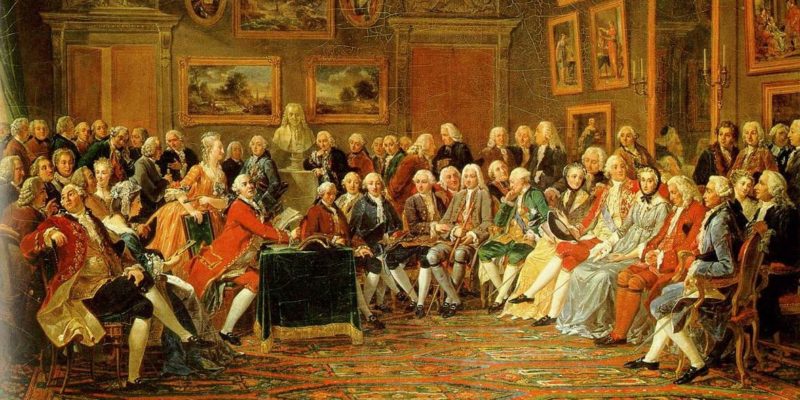
Some important impacts generated by humanism were:
- The restoration of several disciplines that promoted knowledge and that were part of Greco-Roman antiquity.
- The revolution in education, with the dissemination of articles and the opening of universities.
- The revaluation of literature and art, which were a great contribution to culture.
The humanist movement developed over many years and coexisted with other doctrines that emerged in parallel.
The Enlightenment was one of the most important movements that emerged in the 17th century under the influence of Renaissance humanism. This intellectual doctrine emerged in France and was based on the concept of human reason as a basis to explain existence, to combat ignorance and superstition. It was of great influence in the French Revolution.
References
- Choza Armenta, JL (2009). Cultural history of humanism. Thémata: Plaza and Valdés.
- Reale, G., & Antiseri, D. (1992). History of philosophical and scientific thought v. 2: From Humanism to Kant. Herder.
- Gray, H. H. (1963). Renaissance humanism: The pursuit of eloquence. Journal of the History of Ideas, 24(4), 497-514.
- Cordua, C. (2013). Humanism. Chilean literature magazine(84), 9-17.
- Albarracín, ER (2008). What is humanism? Problems of humanistic training. Analysis. Colombian magazine of humanities(72), 89-104.
- Kraye, J. (1998). Introduction to Renaissance humanism. Akal Editions.
- “Humanism” in Encyclopaedia Britannica.

